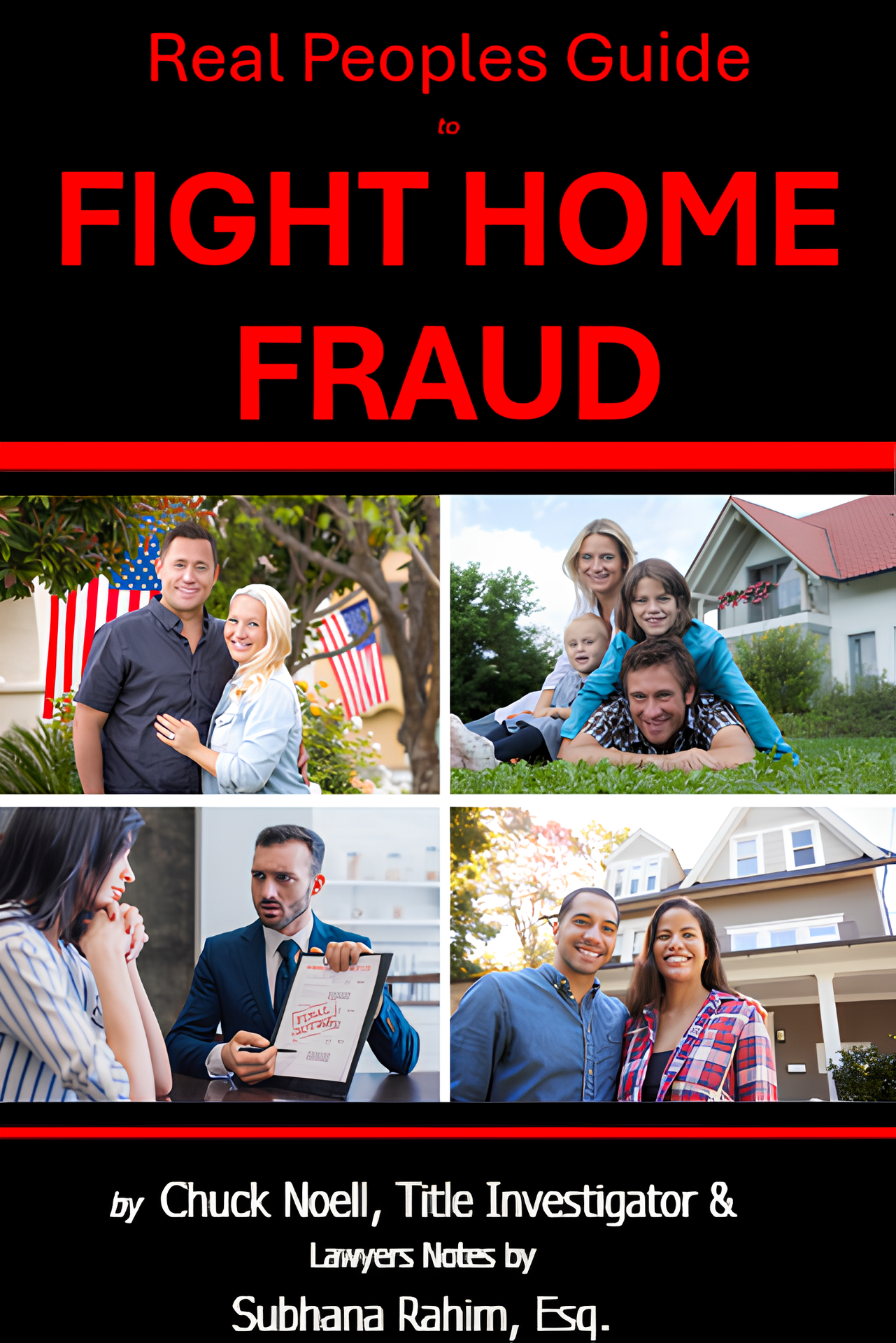
Protecting Yourself as a Home Seller

Protecting against real estate fraud secures your financial interests, and profits from deceitful schemes and crimes.

Safeguarding yourself from real estate fraud boosts your own confidence but also encourages loved ones to safeguard their home ownership rights.

Preventing home fraud safeguards your home ownership benefits, assuring that through buying and owning your home you don’t miss out on enjoying the American Dream.
When selling a home, it’s important to be aware of potentially fraudulent activities that could target you.
Here are five common ways home sellers are defrauded:
Fake Buyer Scams
Fraudulent buyers might present themselves as interested parties, often from abroad, and may even send fraudulent proof of funds or credit reports. They typically make an offer without seeing the home and then concoct reasons to send you money over the actual sale price, asking you to refund the difference. After you send the refund, their initial payment bounces, leaving you out of pocket.
Title Fraud
This involves a scammer forging your identity or property documents to illegally transfer the property title into their name. They might then secure loans against your property, steal the funds, and disappear, potentially leaving you with unpaid loans and legal battles to regain your property title.
Escrow Wire Fraud
In this scenario, a scammer posing as the real estate agent or someone from the escrow company sends you an email with instructions to wire your proceeds to them. However, the bank account is fraudulent, and once the money is sent, it is quickly withdrawn by the criminals.
Rental Scams
Scammers find out your property is for sale and pretend it’s available for rent. They collect security deposits and rent from prospective tenants without your knowledge. This scam not only defrauds the tenants but can create legal and reputational issues for you as the actual owner.
Overpayment Scams
Similar to the fake buyer scam, the scammer here may send you a check for more than the home’s selling price, asking you to refund the excess amount. After you send the refund, you discover that the original check was fraudulent.
To protect yourself from these and other scams, always verify the identities of all parties involved, use secure payment methods, consult with reputable professionals, and be wary of any transaction that seems unusually rushed or too good to be true.
Key Lessons for Sellers
- Due Diligence: Always conduct thorough due diligence, even when dealing with family members or trusted individuals.
- Legal Advice: Obtain independent legal advice before entering into any agreements that involve transferring property rights.
- Title Insurance: Consider purchasing title insurance to protect against potential title disputes.
- Control of Process: Maintain control over the selling process, including the choice of trustees, attorneys, and title companies.
- Verification: Verify all documents and understand the implications of any legal documents you sign.
- Awareness of Fraud: Be aware of the various forms of real estate fraud and the tactics used by fraudsters.

Real Estate Fraud, including mortgage fraud and title fraud, pose serious dangers to buyers and sellers, resulting in devastating financial and emotional consequences.
For existing homeowners wanting to protect their home ownership, “The Real People’s Guide to Fighting Real Estate Fraud” is an invaluable resource.
Financial loss stemming from mortgage fraud can be substantial.
Don’t fall prey to the loss and embarrasment of being decieved by mortgage or title fraud.
You could find yourself losing your dream property or suffering great setbacks financially due to mortgage or title fraud.
The Case of Ty and Granny's Trust
In a scenario reflective of the dangers facing sellers, Ty convinces his elderly grandmother, Granny, to transfer her home into a trust, dubiously named the “Granny Trust,” with Ty acting as the trustee. Under the guise of managing her mortgage payments, Ty effectively gains control over the property. Exploiting his grandmother’s trust and the lack of oversight in the process, Ty then flips the title from the trust to himself, subsequently selling the property for a substantial profit without Granny’s knowledge or consent. This act of betrayal not only highlights the potential for familial fraud but also underscores the vulnerability of sellers to manipulation by those they trust.

Six Key Benefits for You
- Strategies for Due Diligence: The book provides practical advice on conducting due diligence, helping buyers verify the legitimacy of properties, sellers, and involved professionals.
- Knowledge of Legal Protections: It offers insights into legal rights and protections available to home buyers, empowering them to make informed decisions and seek recourse if needed.
- Preparation for Negotiations: Readers learn negotiation tactics and how to approach contracts, ensuring they can advocate for their best interests in transactions.
- Guidance on Choosing Trusted Professionals: The guide advises on selecting reputable real estate agents, lenders, and title companies, reducing the risk of falling prey to scams.
- Empowerment Through Education: By demystifying complex real estate processes and terminology, the book empowers buyers with the confidence to navigate the home buying process more securely and successfully.
- Enhanced Awareness of Fraud Risks: Readers gain a thorough understanding of the various types of real estate fraud, including mortgage and title fraud, enabling them to identify red flags in transactions.

Preventing real estate fraud safeguards your financial investment and gains.

Protecting yourself from home fraud boosts your confidence, and can inspire loved ones to protect their home ownership.

Discovering and Correcting home fraud ensures you won’t miss out on your home ownership benefits, value and profits.
